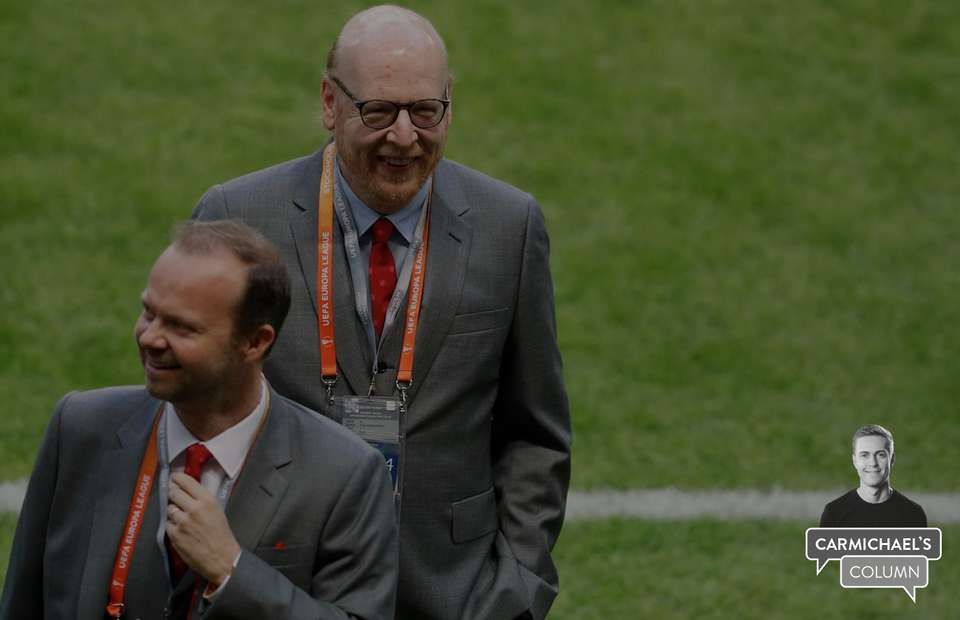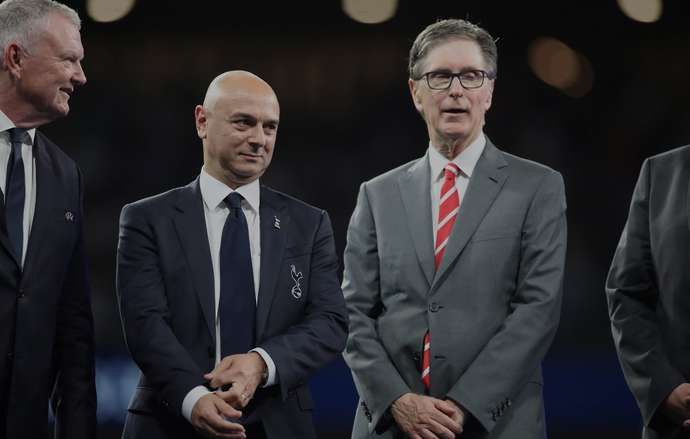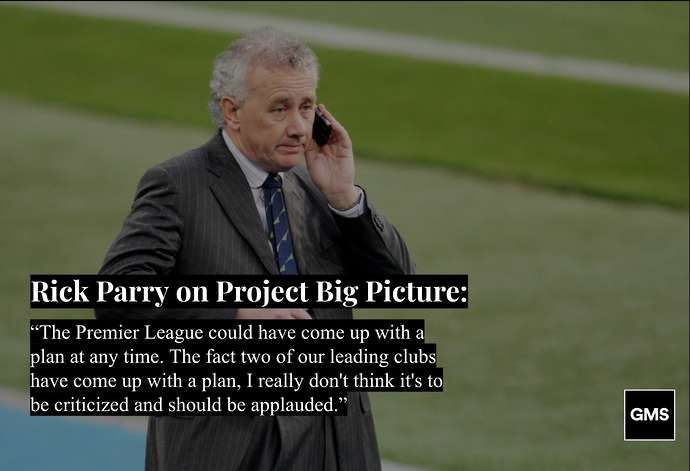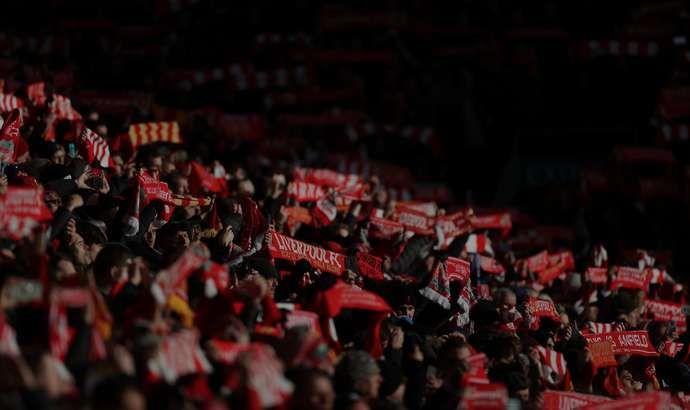In times of despair, movies often teach us that a hero shall emerge, primed for action and armed with a plan to liberate the helpless from their suffering.
Last Sunday, as The Telegraph broke news of ‘Project Big Picture’, Liverpool owner John W. Henry was the man to gallop out from the shadows and present himself as English football’s new face of hope.
Fresh from dismounting his stallion, our saviour’s proposal — backed by both the Glazer family, owners of Manchester United, and Rick Parry, chairman of the English Football League — ostensibly served as an act of genuine compassion amid the pandemic-induced crisis.
The headlines made for great reading: a £250m bailout for the EFL’s 72 clubs; £100m to the FA for the non-league, grassroots, and women’s game; 25 percent of Premier League and EFL annual revenue to be reinvested into the Football League; and a price cap of £20 on away day tickets.
As with any good movie, though, there was a plot twist. Were we really to believe a pair of American plutocrats, owners of the two biggest clubs in England, had some kind of moral epiphany? That they genuinely cared about the football pyramid, its heritage, and the crucial role clubs play within their local communities? Of course not.
This may have looked like an act of goodwill on the surface, but scratch beneath the thin veneer and there’s a troubling power play bubbling away at its core.
The entrenchment of power
The proposal was first drafted in 2017, conveniently one year on from Leicester’s Cinderella story. “We don’t want too many Leicester Citys,” was the line uttered by one big six executive to The Independent, giving some indication of what the true aims of this project may entail.
Indeed, among the faux-Samaritan headlines, one in particular stuck out like a sore thumb: reforming the one-club, one-vote rule. Not only would this have wildly shifted the Premier League’s power dynamic, tilting it unequivocally in favour of the bigger clubs, it would have also allowed them to ring fence the top six, making it near impossible for another ‘Leicester’ to break the mould.
From being able to enforce law changes, having the freedom to sell matchday television rights on their own terms, and even veto takeover bids at rival clubs, others would’ve been agreeing to complete subservience. Thankfully, common sense has prevailed (for now, at least) with the rest of the Premier League rejecting these plans outright at a meeting on Wednesday afternoon.
Nevertheless, this does feel seminal, and reports are already circling that the big six will threaten to break away from the pack should a watered-down version of the project not be adopted and pushed through moving forward.
On closer inspection, this script reads more like Hot Fuzz than Cinderella, with Henry and the Glazers’ wide-eyed babbles about the greater good making you recoil in horror. Not that any of this seems to bother the chairman of the EFL.
Parry, who spent this week playing the role of Henry’s spokesman, parroting his grandiose vision, is the former chief executive of Liverpool Football Club, and played a vital role in constructing the Premier League at its foundation.
Lauded for his shrewd business acumen, the deals Parry cut with both BSkyB and the BBC back in 1992 catapulted England’s top division into a new era of unassailable financial dominance.
Parry was brought into the EFL last year, with his main remit being to sort out the financial crisis that’s plagued its clubs in recent years. It’s little wonder he was so keen to accept this loan-now-ask-questions-later handout. For Parry, it represented an astute chance to strike a deal that secured the futures of all the clubs under his watch. Well, all but two.
That’s because of another key detail, one Henry and co. were no doubt hoping would be lost in the small print: a plan to cut the football league from 92 to 90 clubs. And while the idea of an 18-team Premier League isn’t without merit, forcing two clubs lower down the ladder out of the professional game certainly is.
The thinking behind this streamlined approach most likely stemmed from a desire for big teams to play more games outside of the domestic schedule. The Champions League is where the real money lies, so any move towards an enhanced European format was always likely to be on the cards for United and Liverpool’s billionaire owners.
Less training in the cold autumn frost at Carrington, more big commercial pre-season tours abroad. Less Burnley on a Tuesday night, more Barcelona on a primetime weekend slot. Less Premier League, more European Super League. Less of what matters to fans, more of what puts money in owners’ back pockets.
But what are the lower leagues to do? They’re caught between a rock and a hard place. Gary Neville, David Bernstein and others are currently cooking up their own proposition, but no immediate counter offer feels forthcoming — unless you still hold faith in the government, with its shining recent track record, ordering and executing its proposed fan-led review — and many clubs face the harsh reality of liquidation should they fail to balance the books.
Project Big Picture, while riddled with vested interest, did at least offer them a lifeline, a semblance of hope they reluctantly clung on to.
The erosion of community
And what of the women’s game? Frankly, I’m surprised it was even considered. After all, this was being sold as an act of charity from two club owners, one of whom underfunded his women’s team to the point of relegation last season, and another who shut his down entirely after assuming control in 2005 as it didn’t align with the club’s “core business model”.
The proposal also floated the idea of an independent Women’s Super League, detached from the FA in a similar manner to its male counterpart. And while the concept of private equity funding does bring about new possibilities, it’s a high-risk, money-grabbing strategy that could well have ended in disaster.
This was less about caring for the progression and expansion of women’s football and more of a box-ticking exercise, bringing about the potential to monetise a rising product.
Go through these plans one by one and you soon realise blinding generosity wasn’t exactly high on Project Big Picture’s agenda. It sold a misguided dream, artificially pointing towards a utopian future. The grim reality, however, is that this ‘big picture’ sat on a rather decrepit canvas, laced with greed, deceit and a contempt for fans.
This cinematic saga did not sound the death knell of football, it was just the latest iteration of a game whose soul died long ago. A passing of the torch from one capitalist ideal to the next.
The notion that elite clubs exist to serve their local communities is being eroded beyond recognition, to the point many now feel like corporate shells, quick to place people at the heart of marketing campaigns and even quicker to furlough staff while bidding £50m for football’s next superstar.






















